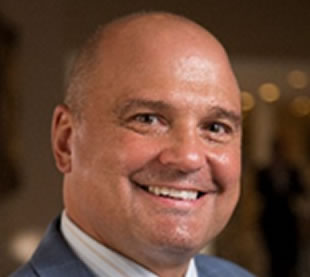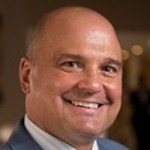
About Here’s to Your Wealth
I am a nationally recognized financial advisor and speaker. I specialize in helping people through life transitions such as divorce, job changes, or death of a partner. I cover personal finance issues facing the working class, affluent investors, and near retirees. My periodic contributions to the market commentary titled “Here’s...
Read more
Discover Other Local Blogs
We have a great number of amazing blog posts contributed by our local bloggers. Discover what is happening in your neighborhood by reading their latest posts.

7 Family Finance Tips To Consider For The New Year
With the New Year fast approaching, many of us are thinking of goals and priorities for the coming year. Personal and family finances should be high on the list of important areas to consider. Spending just a few minutes on some key areas of your financial life can help you start 2017 on the right financial note. Here are seven important items to consider:
1. Make a family budget so you understand your discretionary income. Doing a budget may not sound like fun, but it is important in helping you understand your monthly cash flow and discretionary income: the amount of money you earn after taxes, the amount you spend on essential living costs, and any “leftover” amount, which is your “discretionary income.” How much of your discretionary income you spend and how much you save may be one of the most important decisions you make in your financial life. Well-known web sites like BudgetTracker.com or mint.com make it easy to get started. As an added bonus, in doing your budget, you may identify areas where you can save and thus increase your discretionary income.
2. Review your cost of debt and keep more of your own money. If possible, find ways to reduce the cost of your debt. Consumer debt can be costly, and it isn’t tax deductible. On the other hand, home-equity lines of credit are tax deductible and may be a lower-cost source of cash than credit card debt or auto loans. If you embark on this strategy, be sure to be very disciplined and not to use your home equity line like a piggy bank.
3. Automatically increase your 401(k) or other retirement plan contributions. Raising the percentage of your income that you defer into your qualified retirement plan can be very easy. Simply call your human resources office or go to your 401(k) plan provider website and increase the contribution amount into your 401(k) or other retirement plan. A small and relatively painless annual increase, perhaps when you get a raise, can mean a big difference later in life. Also, check if your employer offers a way to automatically increase your salary deferral percentage each year.
4. Consolidate retirement accounts. Americans are changing jobs more often than they have in the past, and this can result in multiple accounts and overlapping investments. It is not uncommon for someone to have several 401(k) plan accounts at former employers. Consolidating them takes time, and people often consider it a hassle or are simply confused by the process. Calling your 401(k) plan provider can help you start the process. You can consider adding these assets to your current employer’s 401(k) plan or setting up a rollover IRA. Once the number of your accounts is reduced, it may be easier to make changes, coordinate your overall asset allocation, and track performance.
5. Analyze your risk tolerance and asset allocation. A new year is a good time to evaluate your portfolio to be sure it still reflects your current thinking on the markets and that it is structured in line with your goals and objectives. Be aware of potential “style drift” (a shift away from your intended asset allocation, usually as a result of market movements) and if there are areas to your portfolio that can potentially be improved upon. You may be able to complete this yourself or with the help of some online software. If not, look for a qualified financial advisor who may be able to offer his or her assessment.
6. Conduct a beneficiary review on your retirement plans, annuities, and insurance policies. The beneficiaries named in these accounts take precedent over any legal document you create. Therefore, you need to review each of these. I recently worked on settling an estate for a client. Even though I knew this person for almost 20 years, I didn’t know about an old life insurance policy. Evidently, neither did anyone else. My client’s ex-wife, whom he had divorced more than 20 years earlier, was still the beneficiary on this sizable policy that paid her several hundred thousand dollars. Despite their acrimonious divorce, and even though there was no intention of enriching the ex-wife, she nevertheless received the generous insurance checks within weeks of my client’s death. Worse yet, those funds increased his taxable estate, so this policy actually cost his children and other beneficiaries some money in taxes. This is a dramatic example, but it’s a good reminder to verify that your beneficiaries are current and your legal documents reflect your wishes.
7. Review the adequacy of your insurance, especially if you have children. While it’s great—and more fun—to be concerned about buying the latest American Girl doll or Star Wars Lego’s kit, don’t forget to consider buying life insurance to protect your children’s future. The good news is that term life insurance can be relatively inexpensive. Remember, for two-earner families, you may want to insure both parents’ incomes, as the surviving parent may want or need to spend more time with the children and work less. Insurance companies will typically offer up to 10 to 12 times annual income in coverage.
Making sure these areas of your financial plan are in proper order can help you start off the New Year feeling confident and empowered to reach your goals. If you and your family are resolving to improve your financial fitness, these seven tips can be a great way to start.
Learn more about Mark Avallone’s recently released book, Countdown To Financial Freedom

Mark Avallone, MBA, CFP®, CRPS®. www.PotomacWealth.com
Securities and Investment Advisory Services offered through H.Beck, Inc., Member FINRA/SIPC. 6600 Rockledge Drive, 6th Floor, Bethesda, MD 20817 301.468.0100. Potomac Wealth Advisors, LLC is not affiliated with H.Beck, Inc.
This material represents an assessment of the market environment at a specific point in time and is not intended to be a forecast of future events, or a guarantee of future results. This information should not be relied upon by the reader as research or investment advice regarding any funds or stocks in particular, nor should it be construed as a recommendation to purchase or sell a security. Past performance is no guarantee of future results. Investments will fluctuate and when redeemed may be worth more or less than when originally invested. Diversification and asset allocation do not guarantee against loss. They are methods used to manage risk.
* Opinions expressed are subject to change without notice and are not intended as investment advice or to predict future performance.
*The economic forecasts set forth in the presentation may not develop as predicted and there can be no guarantee that strategies promoted will be successful.
* Consult your financial professional before making any investment decision.

About Mark Avallone, MBA, CFP®, CRPS®, AIF®
Mark Avallone is the author of
Countdown To Financial Freedom, and founder and President of
Potomac Wealth Advisors, LLC a financial advisory firm serving clients through holistic financial planning and wealth management.
Avallone writes on a variety of financial topics, and his contributions have appeared in the Wall Street Journal as well as in Forbes where he is a regular contributor.
He is a frequent guest on CNBC, the Fox Business Network, and local NBC, CBS, and Fox affiliates in Washington, DC. His insights have also been published in USA Today, U.S. News & World Report, The Washington Post, and other leading publications
Securities and advisory services offered through Commonwealth Financial Network®, Member FINRA/SIPC, a Registered Investment Adviser. Fixed insurance products and services offered through Potomac Wealth Advisors, LLC or CES Insurance Agency. www.finra.org and www.sipc.com
This communication is strictly intended for individuals residing in the states of AZ, CA, CO, DE, DC, FL, GA, MD, MA, MO, NJ, NM, NY, NC, OR, PA, SC, TX, VT, VA. No offers may be made or accepted from any resident outside these states due to various state regulations and registration requirements regarding investment products and services.
Potomac Wealth Advisors, LLC, 15245 Shady Grove Rd., Ste 410, Rockville, MD 20850 301-279-2221





Engage us on Facebook
Follow us on Twitter
Tweets by @mymcmedia